The Jenna Bush Hager Book Club is, unquestionably, a publishing phenomenon. After five years and 64 books, it’s been described as filling “a vacuum [that existed] since the original Oprah’s Book Club ended its run more than a decade ago.” That’s high praise, especially considering the stunning cultural impact that Oprah’s Book Club has had in the United States. Let’s look into this phenomenon more, including its history, recent picks, and impact.
Jenna Bush Hager Book Club History
Read With Jenna was launched in March 2019, when Jenne Bush Hager joined the TODAY show as cohost of its Fourth Hour. Her first pick was The Last Romantics by Tara Conklin, which immediately landed on The New York Times best-seller list. The New York Times has called Bush Hager “a publishing kingmaker”, which seems merited: 41 of the (then) 63 books she chose for her book club have gone on to become New York Times bestsellers, often at an astonishing pace. Within hours of announcing her May 2019 pick, Etaf Rum’s A Woman Is No Man, the book was one of Amazon’s top five bestsellers.
People aren’t just reading the books she selects: they’re discussing them at length on social media, too. As of March 2024, the Read With Jenna Goodreads group has 27,369 members, the Facebook group 70,600, and @readwithjenna boasts 263,000 followers on Instagram. This kind of success, she admits, she didn’t see coming: “When we started Read With Jenna, we hoped to build a community of people who wanted to read here and there. I don’t think we ever could have imagined that we’d have… a community that’s so engaged and compassionate.”
In February 2022, Bush Hager announced that she was partnering with Universal Studio Group to start a production company, Thousand Voices, to adapt her favorite books into TV shows and movies. Among the company’s first projects are Maame by Jessica George, and Black Candle Women by Diane Marie Brown. In this, Bush Hager follows in the footsteps of another big name in publishing, Reese Witherspoon, who launched her production company Hello Sunshine in 2016, in order to adapt female-written novels to various forms of media: movies, TV shows, and podcasts.
2024 Book Club Picks (so far)
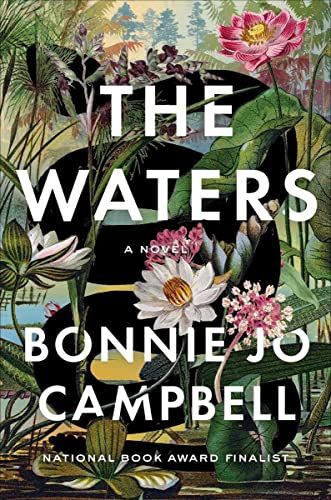
The Waters by Bonnie Jo Campbell
On an island in The Waters, as the area is known to the residents of nearby Whiteheart, live three generations. Hermine “Herself” Zook, her three daughters, including Rose Thorn, and her granddaughter Dorothy “Donkey”.
Donkey’s days are spent immersed in nature and books, a way to ignore the lack in her home life. But her calm childhood will soon come to a screeching halt.
Content warnings: violence (including gun and sexual violence), religious bigotry, and misogyny.
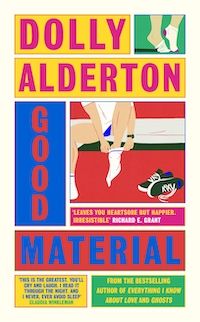
Good Material by Dolly Alderton
Andy doesn’t understand why his relationship with the one woman he’s ever loved ended. He also doesn’t understand why he’s in his mid-30s and has yet to figure his life out. But he’s about to learn a lot of things — including his ex’s perspective.
Content warnings: alcohol use and abuse, and infertility.
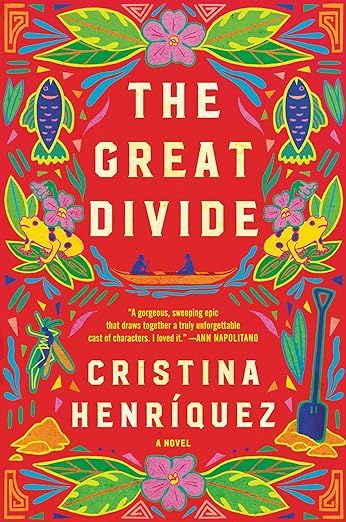
The Great Divide by Cristina Henríquez
A cast of characters is brought together by the construction of the Panama Canal. There’s Francisco, who resents the countries who want a piece of his own; his son Omar, who decides to work in the excavation zone; Ada, a teenager from Barbados who arrives in search of work; and John, who seeks to eradicate malaria. These four characters, who would ordinarily have little to do with each other, find their paths crossing. The book explores how race and class made for a divide that was, indeed, great.
Content warnings: racism, classism, violence.
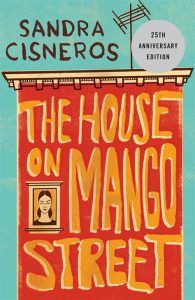
The House on Mango Street by Sandra Cisneros
A 12-year-old girl named Esperanza moves to a run-down house on Mango Street, in an impoverished neighborhood in Chicago. The house is far from the home of her dreams, and Esperanza dreams of escaping both the building and the neighborhood. When Esperanza enters adolescence, abuse and sexual violence aren’t far behind.
Content warnings: sexual assault, racism, fatphobia, and suicidal ideation.
Controversies and Issues
People have raised concerns about the ways in which Read With Jenna promotes Black pain. Tayler Simon Tayler Simon argues that most, if not all, of the book club’s picks by and about Black people primarily feature racism, while none focuses primarily on Black joy. This can lead to a dearth of representation of a crucial facet of people’s lives, and lead to the idea that Black joy is negligible.
Looking over the most recent picks, a pattern does emerge: of the last sixteen books, nine are by authors of color. Every single one of these books deals with racism to some extent, and in most cases, this is embedded into the heart of the narrative. The majority of the books are by women, and most of them feature abuse of some kind, most frequently rape, as a plot point.
In another piece, Simon expresses distaste at the Read With Jenna sticker being placed on The Bluest Eye, Toni Morrison’s brilliant first novel. She states that this disrespects Morrison, who explicitly said that she didn’t write for white people, by placing the focus on a white woman reader instead of the Black little girl the book is about.
To be clear, these are all brilliant books that deserve to be highlighted. But it does bear paying closer attention to the patterns that arise in these and other celebrity book clubs.
All in all, the effect that Jenna Bush Hager has had on publishing is difficult to overstate. Kristen McLean, Executive Director of Business Development at NYPD Books, pointed out that having her distinctive purple, orange, and white book club sticker on a book cover could “move the needle by hundreds of percentage points.” According to Matt Flegenheimer, publishers have gone so far as to change book release dates in the hopes of meeting her announcement timeline. Author Rumaan Alam has likened it to “figuring out who the College of Cardinals is going to pick.”
Publishing kingmaker sounds about right.















































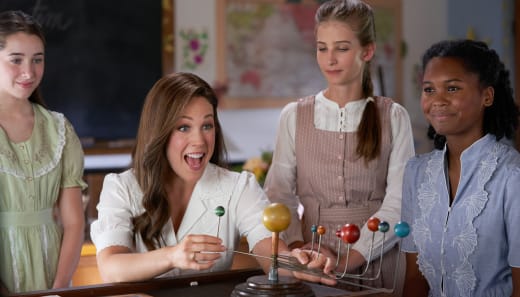



![‘La Brea’ Recap: Season 2 Episode 3 — Eve and [Spoiler] Reunite ‘La Brea’ Recap: Season 2 Episode 3 — Eve and [Spoiler] Reunite](https://tvline.com/wp-content/uploads/2022/10/la-brea-2x03-levi-eve.jpg?w=622)





